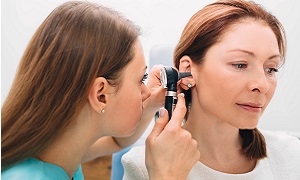Best Doctors in India for Ruptured Eardrum Treatment
Best Hospitals in India for Ruptured Eardrum Treatment
- City: Bengaluru, India
Hospital Highlights:
- Fortis Hospital Bannerghatta, Bengaluru was established in 2006.
- The hospital is a 276 bedded multi-specialty tertiary care facility.
- The hospital specializes in cutting-edge medical technology and dedicated patient care services.
- The hospital is equipped with state-of-the-art technologies like trans-radial angioplasty, trans-abdominal cardiac surgery, and computerized TKR navigation surgery.
- The hospital provides specialty medical services in cardiology, cardiac surgery, orthopedics, neurology, neuro-surgery, GI, and Minimal Access Surgery (MAS).
- City: Chennai, India
Hospital Highlights:
- Fortis Malar was established in 1992 and was formerly known as Malar Hospital.
- The hospital specializes in cutting-edge medical technology and dedicated patient care services.
- The hospital is multi-specialty, tertiary care facility with 180 beds.
- The hospital offers comprehensive medical care in specialties such as cardiology, cardio-thoracic surgery, neurology, neurosurgery, orthopedics, nephrology, gynecology, gastroenterology, urology, pediatrics, and diabetes.
- City: New Delhi, India
Hospital Highlights:
- Established in 1996, Pushpawati Singhania Research Institute is one of the top hospitals in the NCR region, as well as one of the top facilities in India for gastroenterology. The hospital is one of South Asia’s first institutes in medical and surgical treatment for diseases related to digestion.
- The hospital is equipped with state-of-the art facilities coupled with the latest equipment as well as renowned consultants from various parts of India as well as other parts of the world.
- City: New Delhi, India
Hospital Highlights:
- State-of-the-art technology and devoted healthcare professionals have been brought together under one roof at Venkateshwar Hospital to provide genuine medical care. The hospital’s professionals work together as a team to deliver the best possible treatment to their patients, using the most sophisticated equipment and information technology.
- Venkateshwar Hospital’s mission is to attain global excellence in healthcare by employing evidence-based, ethical clinical practices and cutting-edge technology by a team of highly skilled experts.
- City: New Delhi, India
Hospital Highlights:
- Sir Ganga Ram Hospital, New Delhi is known to provide the latest medical procedures with the latest technology in all of its units.
- The hospital has a team of reputed doctors, nurses, and healthcare professionals that ensure that patients receive quality care at affordable costs.
- Staffed with a team of highly qualified doctors, dedicated nurses, and paramedical and non-medical staff, the hospital aims to lead in healthcare delivery, medical education, training, and research.
- As per the vision of the founder, the hospital also provides free treatment to the economically weaker sections of society.
- Sir Ganga Ram Hospital also provides training to young doctors under the Diplomate in National Board(DNB) program. The DNB program at the hospital was started in 1984 and it is known for currently running the maximum number of DNB specialties in the country. It also has the distinction of having the first bone bank in India.
- City: Kerala, India
Hospital Highlights:
- Established in 2019, Apollo Adlux Hospital is the first Apollo Hospital in Kerala and the 73rd hospital owned by Apollo Group in India. With the state’s most advanced, comprehensive healthcare infrastructure and cutting-edge technologies, Apollo Adlux Hospital stands as an example of medical excellence in Kerala.
- With over 34 multi-specialty departments, the hospital believes in providing the best quality treatment to its patients at affordable rates, ensuring comfort at their difficult times.
- The 300-bed hospital is managed by a team of highly qualified and experienced experts who delivers exceptional hospitality to their patients and treats them with great compassion.
- With its affiliation with the Apollo Hospitals Group, the hospital aims in providing patients with top-notch healthcare services while also serving communities in Kerala.
- The hospital has good railway and road connections, and is conveniently close to Cochin International Airport.
- City: Gurugram, India
Hospital Highlights:
- Situated near DLF Cyber City, Gurugram, Narayana Superspecialty Hospital is one of the top medical facilities in the Delhi NCR region, catering to the needs of the people. Known for its commitment to quality medical care and patient service, the hospital is a state-of-the-art facility with planned and well-equipped sections, which includes a spacious OPD area as well as comfortable patient rooms.
- It is the closest super-specialty hospital from Indira Gandhi International Airport towards Gurugram, and also the nearest super specialty hospital from DLF Cyber City. It is also close to major residential areas in Gurugram.
- It is part of the renowned Narayana Health Group. Established in 2000, by Dr. Devi Shetty, a renowned cardiac surgeon, it has grown to be one fo India’s leading healthcare groups.
- City: Noida, India
Hospital Highlights:
- Fortis Hospital, Noida, stands as one of the oldest and most trusted healthcare institutions in the region, setting a benchmark for comprehensive medical care.
- As the second mega hub hospital in the Fortis Healthcare Group, Fortis Hospital, Noida, upholds a legacy of trust among more than 1.2 million patients. By integrating top-tier professionals with cutting-edge technology, the hospital delivers superior treatment across various medical disciplines.
- Specializing in advanced Neurosciences, Orthopedics, Kidney and Liver Transplant Programmes, Fortis Hospital, Noida has successfully performed over 1,500 transplants, solidifying its reputation as a leader in specialized medical interventions.
Ruptured Eardrum
Your eardrum is a thin tissue that separates your ear canal from the middle ear. A ruptured eardrum, which is also termed as a perforated tympanic membrane, is a hole or a tear in the eardrum.
A ruptured eardrum may lead to multiple complications such as middle ear infections and hearing loss. It might also require surgery for repairing the damage to the eardrum. However, if you protect your ear, a ruptured eardrum may heal on its own, without any treatment within a few months.
Symptoms
A ruptured eardrum might have multiple symptoms such as:
- Mucuslike, pus-filled or bloody drainage from the ear
- Ear pain that can subside quickly
- Hearing loss
- Ringing in your ear i.e. tinnitus
- Spinning sensation i.e. vertigo
- Nausea or vomiting resulting from vertigo
If you experience signs or symptoms of a ruptured eardrum, it is essential to inform your doctor. It is important to determine the cause of the symptoms as well as find out whether a ruptured eardrum has occurred.
Causes
Several causes might lead to a ruptured eardrum. Some of the most common causes leading to this condition include:
- Infection is generally the most common cause. The infection may be caused by viruses, bacteria, or fungi infecting the inner ear and/or Eustachian tube, which exerts pressure on the eardrum as well as stretches it. The eardrum may perforate, depending upon the amount of pressure that is put on it.
- Sports injuries which can include any head trauma
- Poor technique of irrigation of the ear canal for removal of earwax
- Trauma
- Other blast waves such as fireworks, gunshots, or any type of explosives
- Car accidents
- Rapid changes in the atmospheric pressure, for example, barotrauma from scuba diving or even from explosives producing a blast wave.
- Sticking a sharp object into the ear canal or even dull objects such as cotton-tipped swabs to remove earwax can also lead to this condition
- Surgical placement of tubes in the ear i.e. myringotomy.
Diagnosis
Generally, an ENT specialist will perform a diagnosis to see if you have a ruptured eardrum. Generally, he/she might use a lighted instrument which can be an otoscope or a microscope.
He/she can conduct additional tests as well for determining the cause of your symptoms or detecting the presence of any hearing loss. Some of the tests may include:
Laboratory tests
Tuning fork evaluation
Tuning forks are two-pronged, metal instruments, and they produce a sound when struck. With simple tests with these instruments, your doctor can detect hearing loss.
A tuning fork evaluation might also reveal if your hearing loss is caused by damage to the vibrating parts of your middle ear, including your eardrum, or any damage to any sensors or nerves of your inner ear, or damage to both.
Audiology exam
Treatment
In most cases, ruptured eardrums heal without any treatment within a few weeks. If there is any evidence of infection, your doctor might prescribe antibiotics. If the tear or hole in the eardrum doesn’t heal by itself, then your doctor is going to recommend treatment. Treatment can include the following:
Eardrum patch
If the tear or hole in the eardrum is not closing on its own, your ENT specialist might seal it with a paper patch, or a patch made of other material. During the procedure, your doctor might also apply chemicals to the edges of the tear, which can help the eardrum to heal itself. After this is done, he/she is going to apply a patch over the hole. This procedure might need to be repeated more than once before the holes close on their own.
Surgery
If a patch is unable to help you with proper healing or your ENT specialist determines that the tear is not likely to heal with a patch, he/ she may recommend surgery. The most common surgical procedure for a ruptured eardrum is tympanoplasty. This procedure involves your surgeon grafting a patch of your own tissue to close the hole in the eardrum. This procedure is generally done on an outpatient basis. In an outpatient procedure, generally, you are able to go home the same day unless due to medical anesthesia conditions, a longer hospital stay is required.
Complications
Your eardrum or tympanic membrane has two important functions, which includes hearing as well as protection.
The complications that can result from a ruptured eardrum include:
- Hearing loss- Hearing loss is usually temporary and lasts only until the tear or hole in your eardrum has healed fully. The size as well as the location of the tear may affect the degree of hearing loss.
- Middle ear infection- A ruptured or perforated eardrum is able to allow bacteria to enter your ear. If a perforated eardrum is not able to heal, you might become vulnerable to infections. This can lead to the occurrence of chronic drainage and hearing loss as well.
- Middle ear cyst- Although rare, this cyst, which is composed of skin cells and other debris, might develop in your middle ear as a long-term result of eardrum rupture.
Prevention
Some of the tips that you can follow in order to avoid a ruptured eardrum include getting proper treatment for middle ear infections, whenever you see signs of symptoms. You should also guard your ears against any explosive noise. Remember to keep your ears free of any foreign objects as well, and avoid digging out excess earwax using paper clips, cotton swabs, and similar items. Such items might tear or puncture the eardrum.
Avoid flying if you are having a cold or active allergy that is causing nasal or ear congestion.











